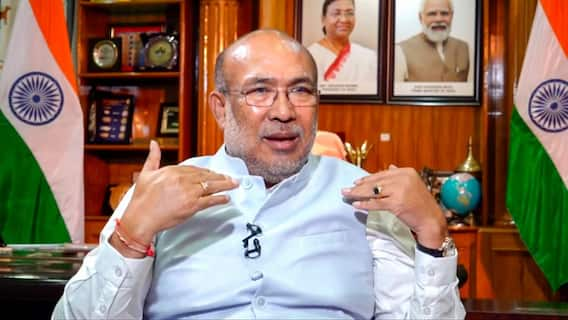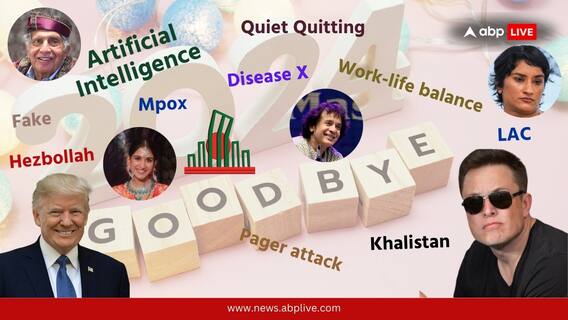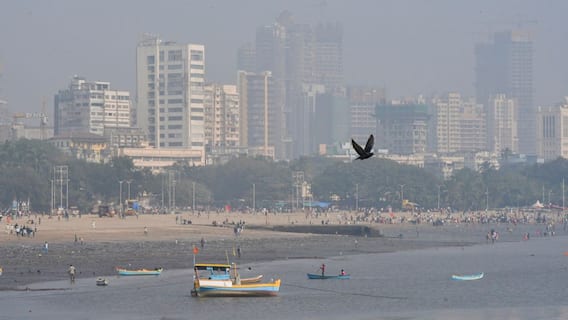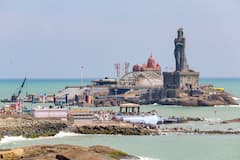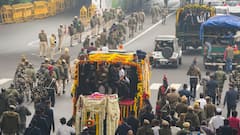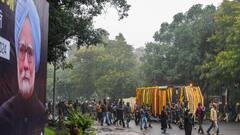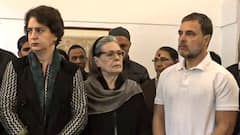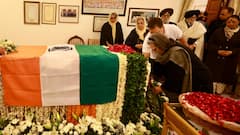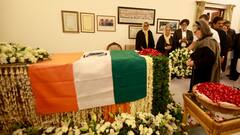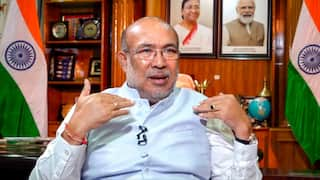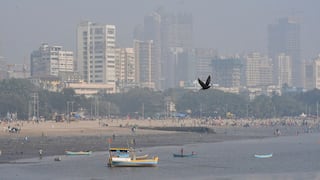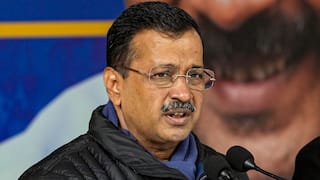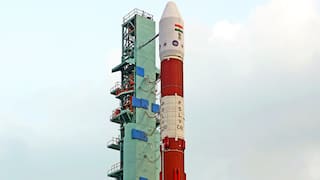Gaza War: Jaishankar Urges Ceasefire 'As Soon As Possible', Says Conflict Is 'Foremost Concern' For India
India's Foreign Minister expressed concern over the ongoing conflict in Gaza, calling for an immediate ceasefire. India condemns terrorism and is deeply concerned about civilian casualties.

Describing the ongoing situation in Gaza as India's "foremost concern" External Affairs Minister S. Jaishankar called for an immediate ceasefire amid ongoing conflict between Israel and Hamas. Speaking at the inaugural India-Gulf Cooperation Council (GCC) Ministerial Meeting in Saudi Arabia, Jaishankar emphasised India's consistent stance on condemning terrorism while expressing deep concern over civilian casualties.
"The current situation in Gaza is now understandably our foremost concern. India's position in this regard has been principled and consistent. While we condemn acts of terrorism and hostage-taking, we are deeply pained by the continuing death of innocent civilians," he said, as quoted by news agency PTI.
Jaishankar highlighted that the response of India must adhere to humanitarian law principles and reiterated support for a swift ceasefire. "We support a ceasefire as soon as possible," he added.
ALSO READ | EAM S Jaishankar Arrives In Saudi Arabia For 2-Day Visit, GCC Foreign Ministers' Meet On Cards
He also mentioned India's consistency towards the resolution of the Palestinian issue through a two-state solution. India has also made its contributions to the building of Palestinian institutions and capacities, he added. "Where the humanitarian situation is concerned, we have provided relief and increased our support to UNRWA," he added.
The GCC is a powerful alliance, which comprises the United Arab Emirates, Bahrain, Saudi Arabia, Oman, Qatar, and Kuwait. The total volume of the trade of India with GCC countries was marked at USD 184.46 billion in the financial year 2022-23.
Jaishankar expressed his pleasure at attending the inaugural India-GCC Ministerial Meeting for Strategic Dialogue. He noted that the event was not only a chance to review past successes but also an opportunity to set an ambitious and forward-looking agenda for the future.
"The relationship between India and the GCC is rooted in a rich tapestry of history, culture, and shared values. These bonds have grown stronger with time, evolving into a partnership that spans economics, energy, defence, technology, education, people-to-people ties and beyond," he said, as per PTI.
The External affairs minister also offered the framework of the 3Ps – People, Prosperity, and Progress. "Our people-to-people ties are the bedrock of our relationship. Close to 9 million Indians work and live amongst you, acting as a living bridge between us. Their contributions to your economic progress are widely recognized. We thank you for ensuring their welfare and comfort," he said.
Jaishankar On Trade Between India And GCC
Jaishankar underscored that trade between the GCC and India has grown not only in volume but also in diversity, covering a broad range of goods and services that drive economic growth and job creation. He emphasised the need for mutual investment to ensure continued prosperity.
He admitted the GCC’s pivotal role in the global energy sector and pointed out that India is one of the fastest-growing markets, with future demand largely coming from there. He stressed that closer collaboration would aid in market stability, innovation, and energy security. "Our partnership in the areas of renewables, technology and innovation, health, space, and education can also help realize our respective national goals," Jaishankar remarked.
According to Jaishankar, the GCC-India relationship is made on a foundation of trust, mutual respect, and a shared vision for the future. "It has a larger goal of advancing progress in a world that is characterised by technological advancements, changing geopolitics, shifts in the global economy, and the urgent need to address environmental sustainability," he said.
On October 7, Hamas, which rules the Gaza Strip, carried out an unprecedented assault on Israel via land, air, and sea, resulting in 1,200 fatalities and 250 kidnappings. In response, Israel launched a major offensive in Gaza, leading to extensive destruction and an estimated 40,000 deaths, according to local health sources. Despite ongoing conflict for 11 months, the two sides have not yet agreed on a cease-fire.
Trending News
Top Headlines






